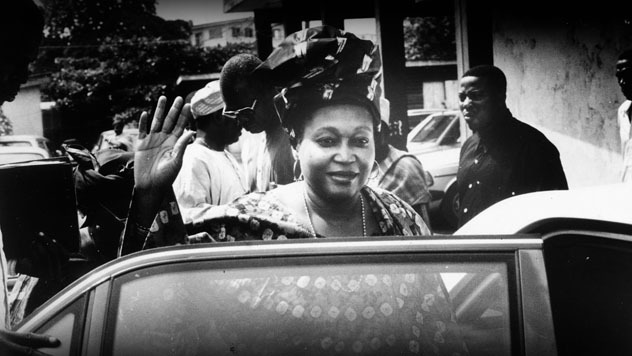Nigeria is a huge country. Populated by over 160 million people and boasting a landmass which is significantly bigger than Mainland Europe, the most visited country in Western Africa is a chaotic and diverse nation. Comprising almost 400 different ethnic groups, over 500 languages, not to mention a split between Islam and Christianity and native beliefs, it’s a notoriously complex country to govern. Since it gained independence in the ’60s, it’s largely been under the thumb of military rule. This seemed set to change in 1993 when M.K.O. Abiola united the country and was democratically elected as president. However, this was swiftly annulled by the military dictatorship.
The Supreme Price tells the story of M.K.O. Abiola and his second wife Kudirat through the voice of their daughter, Hafsat. Joanna Lipper’s documentary uses interviews with family and prominent figures, interspersed with archive footage and photographs, to relive the history of the Abiola family. However, don’t be fooled into thinking that this is the story of any man. Lipper focuses on the work done by Kudirat and Hafsat in the progressive movement for change, especially in terms of women’s rights.
The Supreme Price is a documentary about two strong women and their fight against inequality in Nigeria, played out against a political backdrop. It’s a very well constructed documentary, informative and benefits from access to those who weren’t in the limelight. A minor criticism would be that it’s very one-sided. It’s also never really clear how much progress is being made in the feminist movement, and given the attitude of Hafsat’s brother, maybe not as much as it may want you to think.
The Supreme Price has a number of screenings around the UK from this Friday.














No Comment